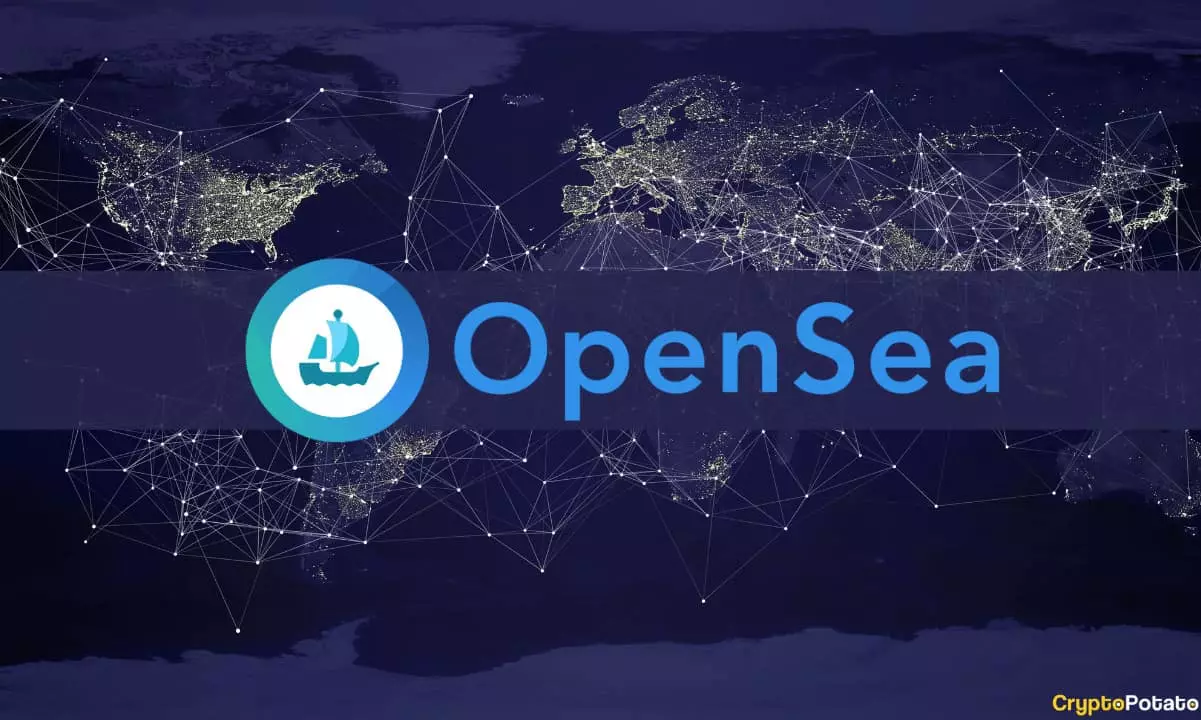In the rapidly evolving landscape of Non-Fungible Tokens (NFTs), OpenSea has emerged as a major player since its inception. However, recent developments suggest that this once-prominent marketplace is now grappling with a multitude of challenges that have significantly impacted its operations. The past few months have seen a noticeable decline in user engagement on the platform, causing ripples of uncertainty about its sustainability and future growth. The escalating issue is not just limited to dwindling activity; it has compounded into a startling exodus of key personnel within the company, raising alarms about the firm’s internal stability and external competitiveness.
The departure of four high-ranking executives within a short timespan serves as a significant indicator of turmoil. Notable figures such as former COO Shiva Rajaraman, former head of business development Jeremy Fine, and others have exited to assume roles at esteemed organizations. This trend calls into question the internal morale and strategic direction of OpenSea. Rajaraman’s transition to a position at Uber, along with Fine’s move to OpenAI’s Growth and Product Partnerships, highlights a worrying trend wherein talented executives prefer to align themselves with companies seen as more stable or promising. The implications of these departures extend beyond mere staffing; they signify a potential loss of vision and leadership that may hinder the firm’s strategic resilience.
As OpenSea navigates these challenges, it faces heightened competition from emergent platforms like Blur and Magic Eden, which have rapidly gained traction in the NFT marketplace. Attractive features, competitive fee structures, and innovative user experiences have propelled these platforms into the limelight, drawing users away from OpenSea and creating an increasingly crowded and competitive environment. This shift not only threatens OpenSea’s market share but also demands a reevaluation of its service offerings and operational strategies in order to regain its foothold.
Further complicating matters, OpenSea is now under the scrutiny of regulatory bodies, notably the U.S. Securities and Exchange Commission (SEC). The ongoing investigation into whether the NFTs listed on its platform qualify as unregistered securities adds another layer of uncertainty. Legal challenges pose significant risks that can undermine investor confidence, particularly in a sector already sensitive to market fluctuations. OpenSea must navigate these legal waters while concurrently developing robust compliance measures that will not only satisfy regulatory requirements but also bolster its credibility within the crypto industry.
OpenSea’s narrative has shifted from that of a pioneering titan in the NFT space to one of an organization facing critical challenges on multiple fronts. The combination of leadership changes, competitive pressures, and regulatory scrutiny creates a complex panorama that demands immediate and effective responses from the firm. As the NFT market continues to evolve, embracing innovation and transparency will be vital for OpenSea to reclaim its position of prominence in a domain rife with competition and uncertainties. The coming months will undoubtedly be crucial in determining whether OpenSea can adapt and thrive or succumb to the pressures besetting it.

